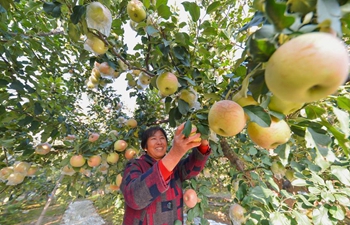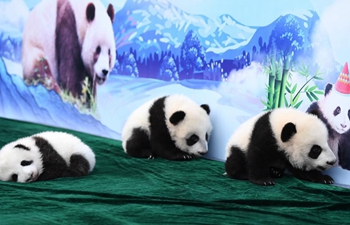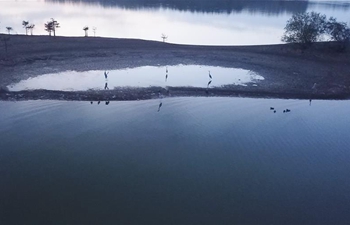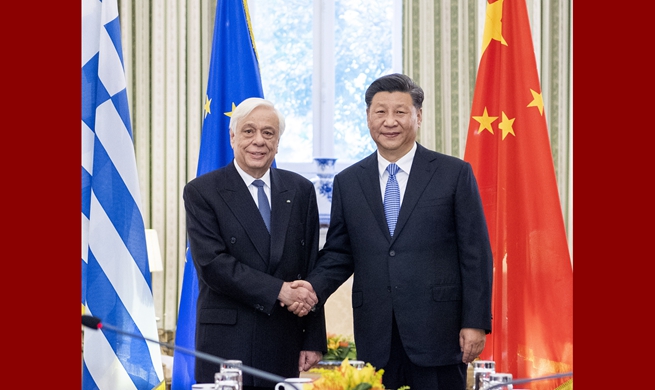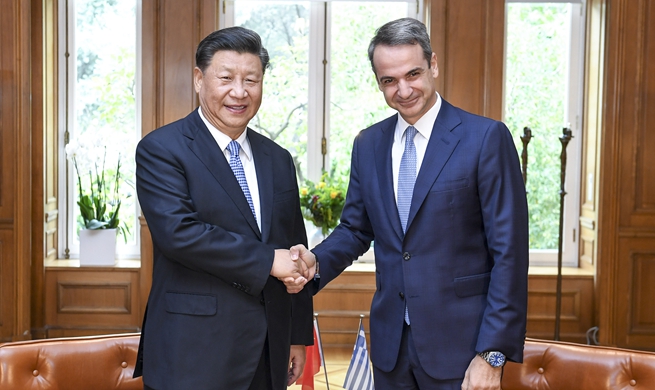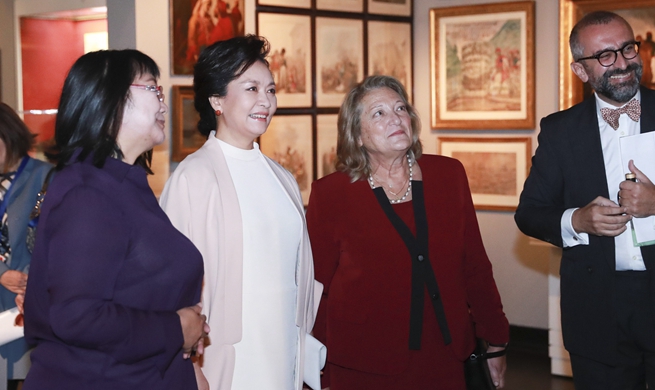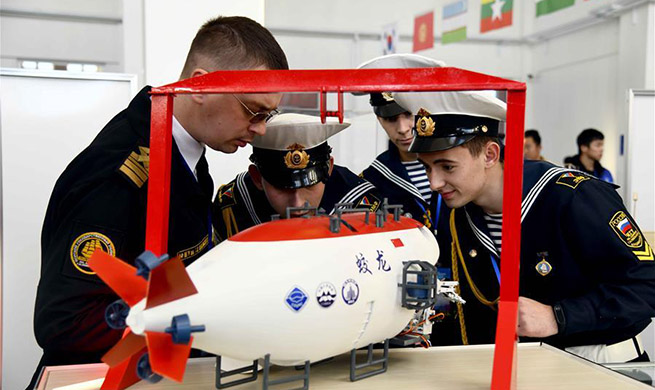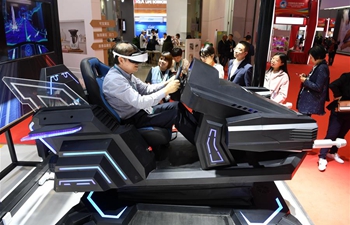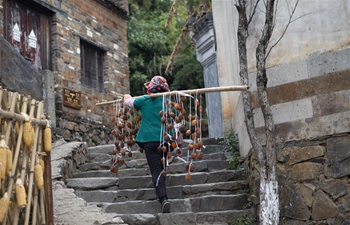by Zhang Jiawei
LONDON, Nov. 11 (Xinhua) -- China's science and technology research community has witnessed "increasing international cooperation in recent years," with research quality in certain areas reaching world class levels, said Jianping Wu, a newly elected international fellow of the United Kingdom's (UK) Royal Academy of Engineering, in an interview with Xinhua.
The Royal Academy of Engineering has recently announced its latest list of leading engineers from the UK and around the world who have been elected as fellows. Among them, Wu and three others have been admitted to the academy as international fellows.
Wu is also an academician of the Chinese Academy of Engineering and the dean of the Department of Computer Science and Technology of China's Tsinghua University.
He is known for his "outstanding contributions in leading the development and deployment of the internet in China and Asia Pacific that resulted in global impact, and in pioneering advances in internet architecture engineering and technology for the global internet," according to the Royal Academy of Engineering.
"Chinese researchers are proving that they can make contributions to the world's science and technology advancement and their capabilities of carrying out high quality research are growing, especially in some emerging and pioneering areas," said Wu.
"For example, my fellowship is in recognition of my contribution to the internet architecture engineering and technology," he said.
Since 1994, Wu has been leading the design, development and evolution of CERNET (China Education and Research Network) into the largest national academic network in the world, and he has been a leader in the promotion and deployment of IPv6 (Internet Protocol Version 6) in China, according to Wu's fellowship nomination citation.
"We started building CERNET 25 years ago, and since then there has been increasing international academic exchange and cooperation in education and research," said Wu.
Researchers from various regions have been well connected through academic networks like the CERNET, he said.
"The Royal Academy of Engineering has worked extensively with the Chinese Academy of Engineering for over 20 years, collaborating on some of the most important engineering challenges facing humanity," Dr. Andrew Clark, director of programs at the Academy, told Xinhua via email. "These include energy storage, water supply and AI (artificial intelligence), and our academy has conducted several missions to China and hosted visits in return."
Over the past four years, the Royal Academy of Engineering has supported 60 Chinese researchers' work to commercialize their innovations with an impact on international development through its Leaders in Innovation Fellowships entrepreneurship innovation training program, according to Clark.
"We hope and expect to see more Chinese scholars elected to the academy in the future," said Clark.
In Wu's view, the international exchange among researchers in different fields and disciplines needs to be carried out under the principle of mutual benefit and with an open attitude.
He said: "If science and technology are to benefit humanity, we need extensive cooperation in research."
During his long career, Wu has guided and taught many young researchers, and he could see that the environment for research has "become better" these days, as many countries around the world have made substantial investment in research, especially by supporting young researchers' work.
"From my perspective, I can see that nowadays funding for research is sufficient, and take China as an example, increasing investment in research has led to some significant scientific and technological achievements," said Wu.
Wu has won numerous accolades for his work, but he does not see becoming a fellow as the ultimate goal of his career.
"The most important thing is that I can continue to contribute to the advancement of engineering and technology in my country and in the world," he said.
